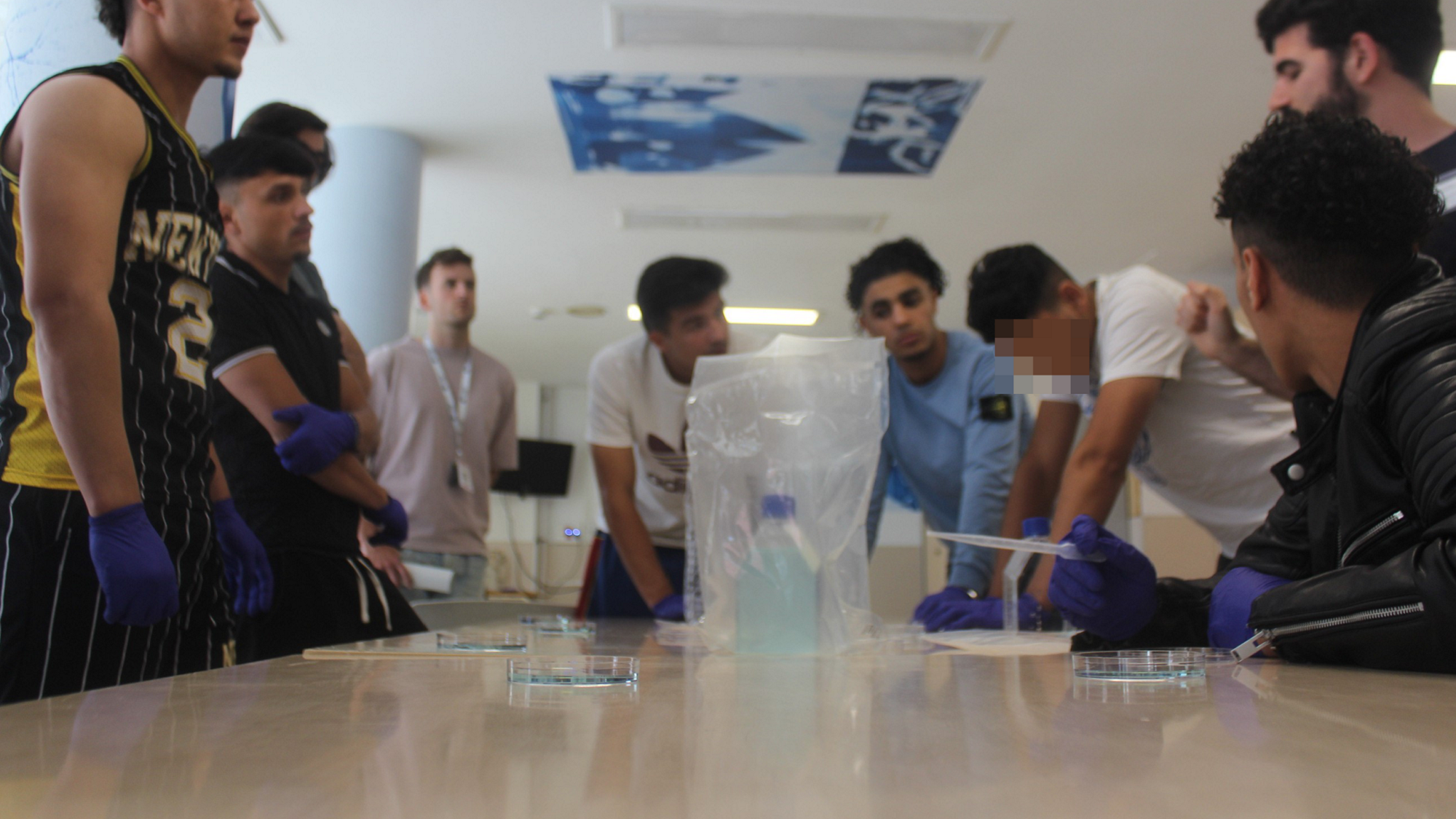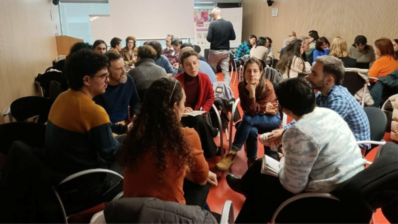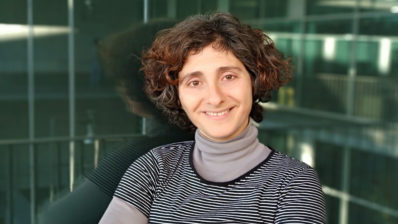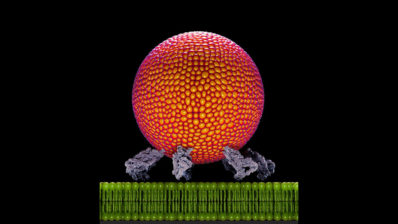Last June, Xavi Sabaté, a postdoc in Cristina Pujades’ lab at the Department of Medicine and Life Sciences, Universitat Pompeu Fabra (MELIS-UPF), visited the Youth Penitentiary Center in La Roca del Vallès to conduct a science workshop. He plans to repeat the experience and invites other researchers at the PRBB to join this initiative, which proved highly rewarding both for him and for the participants.
In this opinion piece, Xavi shares his experience and tells us why this initiative is important.
——————————————————
Every October, thousands of people visit the Barcelona Biomedical Research Park (PRBB) during its open day. With the goal of bringing research closer to those without direct contact with it, the park’s research centers organize lab visits, activities for children, workshops, and talks.
This is an excellent opportunity for the scientific community to fulfill its responsibility of making research accessible beyond academic and professional fields. In fact, this commitment entails overcoming socioeconomic barriers, bringing knowledge, scientific updates, and our daily lab life to everywhere. Unfortunately, even today, science communication spaces and channels exclude many sectors of society. A clear example of this omission is the prison population.
Science communication spaces and channels exclude many sectors of society. A clear example of this omission is the prison population.
Prisoners face significant social biases that hinder their reintegration and are susceptible to self-stigmatization. Evidence highlights the importance of science outreach in vulnerable environments such as prisons: it fosters awareness and interest in research and can transform life expectations and how individuals interact with the world. Recently, the University of Castilla-La Mancha and the Spanish National Research Council (CSIC) organized conferences where dozens of speakers presented their research fields in prisons, answered questions, and broke down prejudices. However, there are still few initiatives aimed at bringing research closer to penitentiary centers.
Impuls Jove
Impuls Jove is a program developed at the Youth Penitentiary Center in La Roca del Vallès aimed at supporting young inmates to improve their family relationships, environment, and reintegration into the community. An important part of this program, initiated in 2015 by the Health and Community Foundation and funded by the Government of Catalonia, is to bridge the gap between the prison and the outside world. To achieve this, various sessions are organized with volunteers willing to share their knowledge in different fields, such as sports or music.
In this context we launched a project to bring science closer to the young people in this penitentiary center. In the workshop we held on June 3, 12 inmates aged 18 to 25 participated, along with two teachers and three members of the Impuls Jove team (two psychologists and a social worker). It started with a brief introduction about what it means to be a researcher today, followed by two hands-on experiments: the first introducing zebrafish as a model organism for studying embryonic brain development, and the second presenting the basic concepts of DNA with a demonstration of DNA extraction.
“It was very interesting to demystify the figure of the scientist. It’s appreciated that an external professional comes and invests their time. Moreover, being introduced to their profession and a different reality is very enriching.”
Maria M., social worker at the Impuls Jove program
Most participants had never had any prior scientific experience, making this workshop their very first direct contact with research. Therefore, such activities not only help change inmates’ perception of science but also challenge the often-imposed belief that this field is inaccessible to them. Additionally, the participation of inmates, educational staff, and social workers demonstrates how the workshop fosters relationships among different members of the Youth Penitentiary Center.
All this underscores the importance of ensuring that science communication is equitable and inclusive. It also highlights how science can serve as a gateway to culture and a tool for reinforcing a sense of citizenship and helping to destigmatize the prison population. For me, the experience has been very positive, and workshops for the coming months are already being organized. The project is open to any PRBB member who wishes to participate or organize their own workshop, so if you’re interested, feel free to contact me!






